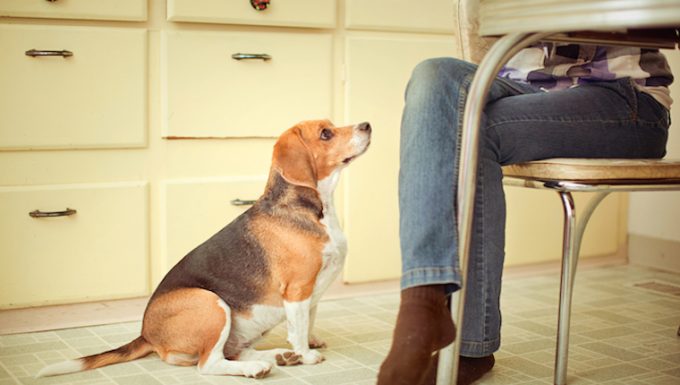High cholesterol in dogs happens when a dog has too much fat in their blood. The condition can cause obesity and neurological problems.
The condition is usually caused by an underlying condition. For example, diabetes, thyroid issues, and even pregnancy can cause it.
Technically, the condition is also known hyperlipidemia.
If you see the signs of high cholesterol in your dog, then get to a veterinarian for a proper diagnosis and treatment.
Here’s what you should know about the symptoms, causes, and treatments for the condition.
Symptoms of High Cholesterol in Dogs
The condition produces a wide range of symptoms. For example, some of the most common symptoms include:
- Diarrhea
- Vomiting
- Loss of appetite
- Stomach pain
- Loss of hair
- Eyes becoming cloudy
- Seizures
- Itching a lot
Causes of High Cholesterol in Dogs

The cause of the condition is often an underlying condition. For instance, some of the most common causes include:
- Diabetes
- Obesity
- Cushing’s Syndrome
- Pancreatitis
- Pregnancy
- Hypothyroidism
Generally, dogs who eat high fat diets increase their chances of developing the condition. Additionally, Beagles and Miniature Schnauzers can be genetically predisposed to it.
Treatments for High Cholesterol in Dogs
Firstly, your vet will ask about your dog’s symptoms. Secondly, your vet will ask about your dog’s complete medical history. This will include breed-specific problems.
Thirdly, a full physical examination will be carried out. Blood and urine tests will be taken. Sometimes, your dog will need to fast for 12 hours before the tests.
Generally, treatment focusses on your dog’s diet. Your vet will switch your dog to a low fat diet. As always, make sure to follow your vet’s instructions precisely when changing diet.
Also, remember that changing your dog’s diet is a gradual process. This may take a number of weeks. Patience is key.
You can read more about healthy eating tips for your dog here!
Have you ever cared for a dog who suffered from this condition? How did your vet help your dog recover? Let us know in the comments section below.









